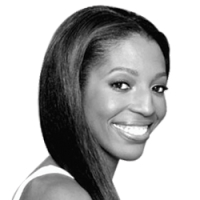Lena Dunham recently sparked an online frenzy by tweeting about something that doesn’t seem particularly controversial: birth control. Her tweet “I need birth control because I have endometriosis and it helps manage pain. Why do you?” went viral. And at first I couldn’t figure out why.
Haven’t we all known since the contraception mandate debate began that there are a “few” women who “occasionally” use contraception for reasons other than delaying, or avoiding, motherhood? Sandra Fluke, for instance, name-checked some of these women during the congressional testimony that turned her into a conservative target and then a feminist rock star.
But conversations with friends following Dunham’s twitter-confession helped me realize why the tweet struck a chord: Many women use birth control for reasons other than pregnancy, and we just haven’t heard from them much because those reasons are usually embarrassing. As a result, women rarely discuss other reasons for using birth control among themselves, let alone boyfriends or husbands, and certainly not in public political discourse.
In the years since the contraception debate first exploded, the media narrative has remained largely the same: Women rely on birth control to prevent pregnancy, and a handful of women who have more exotic health woes need contraception for something else. They are rarities, so the thinking goes, and if they really and truly need birth control for health reasons they will find some way to get it covered, regardless of how religious their employers are.
However, after chatting with a few friends who, like me, had relied on birth control at one time or another for reasons beyond pregnancy prevention, I decided to email 10 other women and ask the awkward question: Have any of you taken birth control for reasons that had nothing to do with preventing pregnancy? Only two women wrote back to say pregnancy prevention was the primary reason they had used birth control throughout their lives. The eight others wrote back with stories about a variety of health conditions that caused them to take some form of contraception.
One Texas based woman said her menstrual flow was so heavy as a young woman her doctor prescribed birth control so she would not become anemic. A woman named Deborah wrote back and said she is currently using an IUD, one of the forms of birth control at the heart of the Hobby Lobby dispute, for the same reason. (An ob-gyn quoted by The New York Times in 2008 cited IUDs as one of the best methods for treating heavy menstrual bleeding.)
Three women said they had severe acne and the doctors tried birth control pills as a last resort. Another woman said she is currently using it to battle polycystic ovaries. Others mentioned severe premenstrual symptoms—the kind that can’t be cured by popping a Tylenol.
While 10 women do not constitute a comprehensive survey, the responses are striking nonetheless. Furthermore, a 2011 analysis by the nonprofit Guttmacher Institute found that 14 percent of women use contraception exclusively for something other than pregnancy prevention. In fact, many of these women have never had sexual intercourse.
And the same data found that only 42 percent of respondents use the pill exclusively for pregnancy prevention, meaning that for nearly 60 percent of women, preventing pregnancy is only one reason they take contraception. Making this number more noteworthy is that some of the contraceptive-using women I emailed made a point to note that they are not currently sexually active.
Why does that matter? Because, in a study, they may technically fall into the category of someone who has used contraception for pregnancy prevention and other reasons, even though right now the reasons they take birth control have nothing to do with pregnancy prevention.
And there are a host of other reasons women take birth control that have come up in previous conversations I’ve had, but would be unlikely to emerge in an article on public policy. For instance, some women use it not only to curb premenstrual symptoms, but also to control when they menstruate. So if a woman has a job that will be particularly demanding and require more physical exertion during a certain time of the month, she can use her birth control pills to ensure that she doesn’t get her period at a moment when it could really inhibit her performance. That not only benefits her, but her employer as well.
Rolling your eyes? Then consider this. In 2013, Taiwan passed an amendment to its Gender Equality Act allotting women three paid days of menstrual leave each year. Which seems like a better economic move for employers: Having women miss work because of preventable symptoms, or covering medication that can alleviate the symptoms?
But even raising the role of birth control in treating menstrual symptoms publicly can be politically fraught for some women. After all, there are already thousands of jokes out there about women and PMS. And there is already the perception among some men that, if we need meds to help us function once a month because of mother nature, then we really are the weaker sex.
This may be one reason that some of the women I reached out to, some of whom are in media, have never mentioned their own non-pregnancy-related birth control needs on the record—even when they have addressed the topic publicly. Only two women I talked to, in fact, were comfortable with me using their names in this piece.
While women may not want to have a candid conversation about pregnancy prevention with a boss, even fewer want to have a candid conversation about menstruating, or endometriosis or acne for that matter. On the one hand, we shouldn’t have to. Ideally our health matters should be private. But since so much of the debate around contraception has become about necessity versus choice, and sexual choice in particular, maybe if some of us gathered the courage to speak more openly about the reasons we need contraception—reasons that are awkward and uncomfortable but still important—the conversation would shift.
Viagra originally gained wide public acceptance not because of the sexy ads we are all used to seeing now, where jazz music plays softly as a “mature” couple frolics in a hot tub, but because Bob Dole starred in a bunch of uncomfortable commercials. He reminded us he had a health problem and found a medication that addressed it.
Maybe more women need to be willing to do that; to tell the truth, no matter how uncomfortable it makes us, and no matter how uncomfortable it makes some of the men making decisions for us. In fact, my guess is that if President Obama stopped talking about “choice” and “reproductive health” and repeated over and over “A lot of women have heavy menstrual bleeding and need medication,” most male opposition would retreat, if only so they never had to hear the words “menstrual bleeding” ever again.
So instead of just focusing on court cases and politicking, maybe supporters of birth control should focus on finding the movement’s Bob Dole, who can send a convincing and compelling message that contraception is a necessity.




